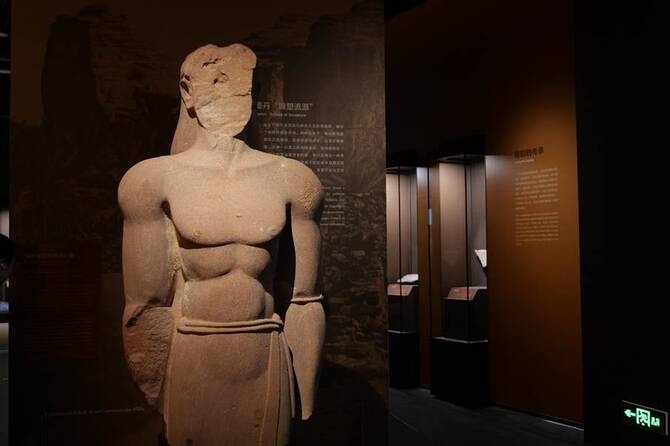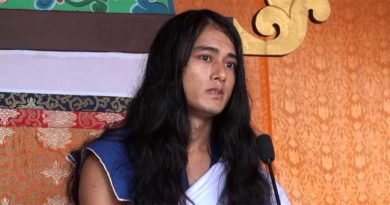AlUla–Pompeii Partnership Aims to Redefine Global Cultural Travel
Riyadh – The ancient heritage destinations of AlUla in northwestern Saudi Arabia and Pompeii in southern Italy have entered into a landmark cultural partnership designed to reshape how travelers engage with history.
The collaboration brings together two globally renowned UNESCO World Heritage Sites that share a vision of preserving heritage and enriching visitor experiences through shared knowledge and innovative conservation approaches.
This partnership is being positioned as a major step forward for international cultural cooperation, blending two distinct archaeological landscapes that have influenced generations of scholars, travelers, and heritage experts.
By combining their strengths, both destinations aim to deliver deeper and more interactive ways for visitors to understand ancient civilizations and the environments that shaped them.
A delegation from the Archaeological Park of Pompeii, led by its General Director Dr. Gabriel Zuchtriegel, recently visited AlUla under the wider Saudi-Italian Cultural Cooperation Framework.
The visit emphasized the importance of heritage diplomacy and the role that international collaboration plays in safeguarding archaeological sites that continue to evolve with research and tourism demands.
Officials from the Royal Commission for AlUla said the partnership marks a significant moment in strengthening cultural ties between the two countries.
Experts from both sides engaged in extensive discussions on conservation methods, site interpretation, and improving on-the-ground visitor engagement strategies.
Set against dramatic desert cliffs and expansive oases, AlUla is home to Hegra, the first site in Saudi Arabia inscribed on the UNESCO World Heritage List.
Hegra’s monumental tombs, carved by the Nabataeans more than two millennia ago, serve as a testament to human ingenuity and long-standing cultural connections across ancient trade routes.
Pompeii, by contrast, offers a rare snapshot of a Roman city frozen in time after the eruption of Mount Vesuvius in 79 CE.
Its preserved streets, villas, workshops, and public spaces provide an unparalleled insight into the daily lives of ancient inhabitants, making it one of the most visited archaeological sites in the world.
During the visit, specialists explored how the two destinations can respond to rising global expectations for experiential and sustainable tourism.
Heritage professionals discussed the need to balance preservation with accessibility while ensuring that modern visitors can form meaningful emotional and intellectual connections with ancient sites.
RCU’s chief tourism officer, Phillip Jones, noted that travelers increasingly seek immersive experiences rather than passive observation.
He emphasized that collaborations like this create opportunities to enhance storytelling, highlight craftsmanship, and deepen understanding of the cultures that shaped both regions.
The partnership also reflects the complementarity of the two locations. Where Pompeii represents a moment of urban life halted abruptly, AlUla reflects long-standing continuity, with layers of culture, archaeology, and living traditions still intertwined in the region.
Dr. Abdulrahman Al-Suhaibani, vice president of culture at RCU, highlighted that Pompeii’s focus on urban archaeology offers different but valuable insights when paired with AlUla’s landscape-based approach.
Together, these perspectives open new pathways for conservation, research, and interpretation that can elevate how heritage sites are managed around the world.
Pompeii’s General Director Dr. Zuchtriegel said the two destinations share a belief in the power of heritage as a bridge between cultures.
He underscored the importance of responsible and sustainable visitation, encouraging travelers to engage with history in ways that respect both the sites and the communities that care for them.
Future initiatives under the partnership include joint exhibitions celebrating cultural exchange between Saudi Arabia and Italy, as well as collaboration on sustainable heritage management through the Pompeii G.R.E.E.N. Conference.
These projects aim to integrate culture with nature, agriculture, and community development to ensure long-term protection of historical landscapes.
Silvia Barbone, vice president of strategic partnerships at RCU, said the visit marks the first milestone since the signing of the partnership in the presence of Italy’s leadership.
She noted that the collaboration aims to transform heritage into a dynamic resource that continues to educate and inspire future generations while supporting local communities.
For travelers, the partnership promises expanded access to immersive storytelling, enhanced conservation techniques, and more interactive cultural experiences.
Whether exploring Pompeii’s ancient stone streets or discovering the carved tombs of Hegra, visitors can expect richer narratives that bring the ancient world to life through innovative interpretation and shared global expertise.


